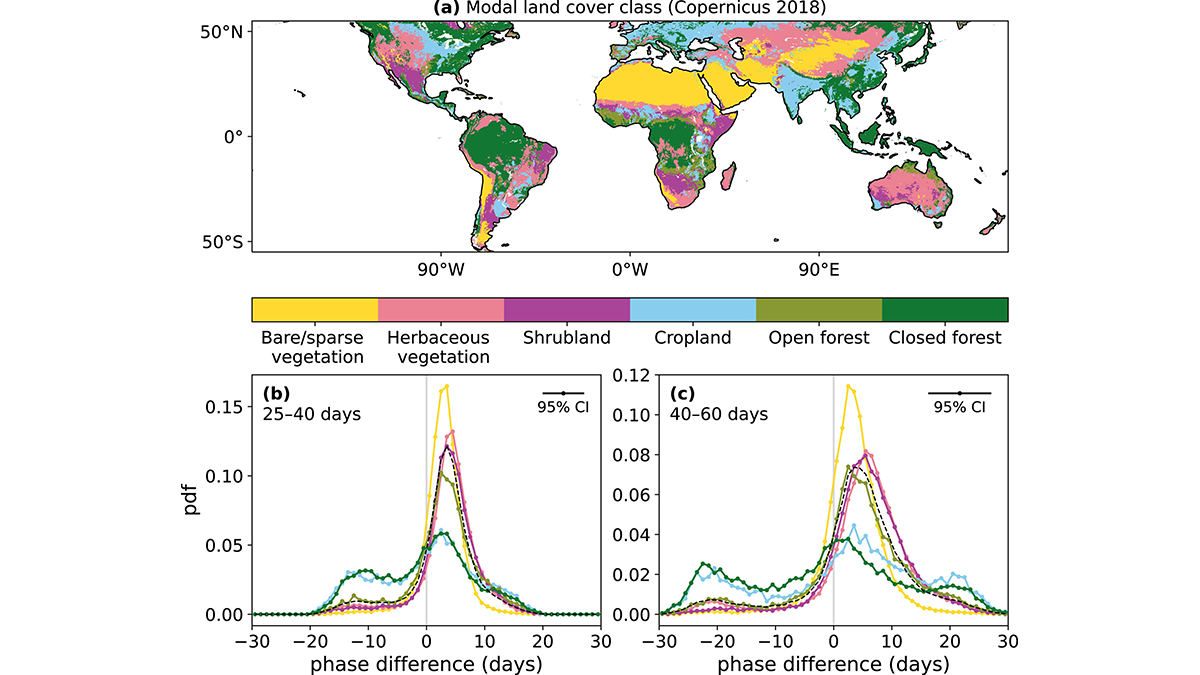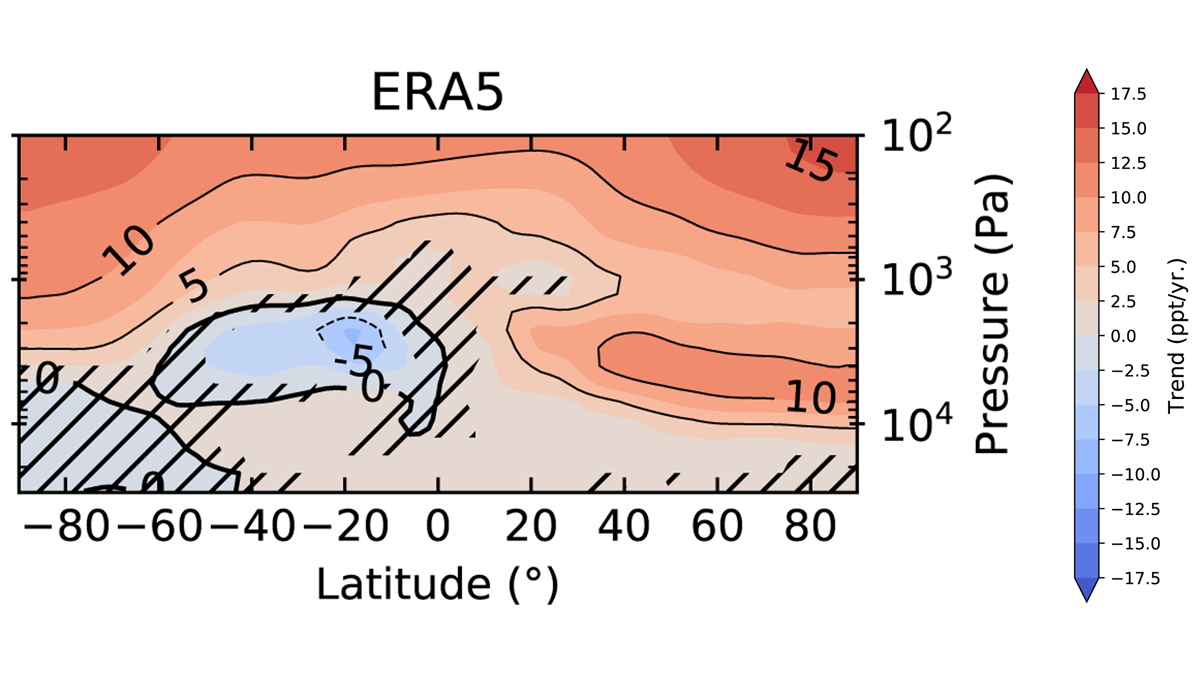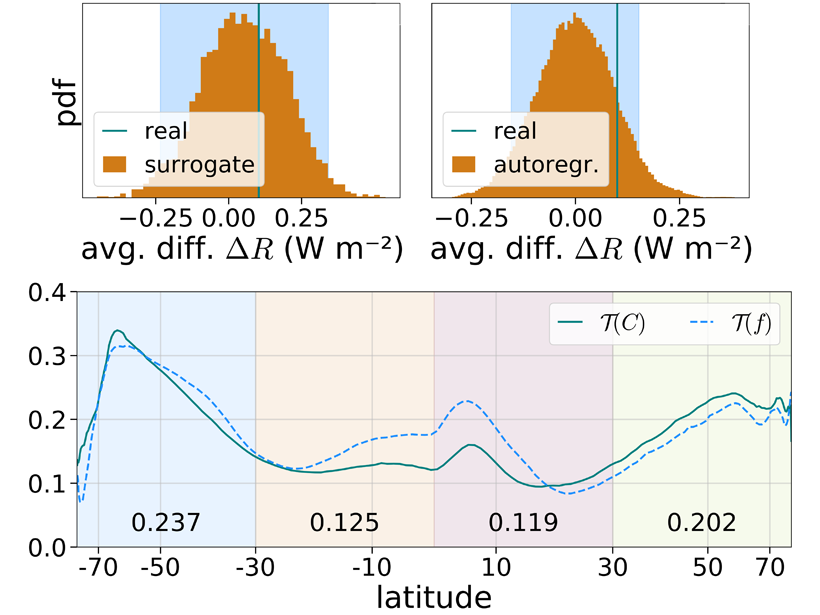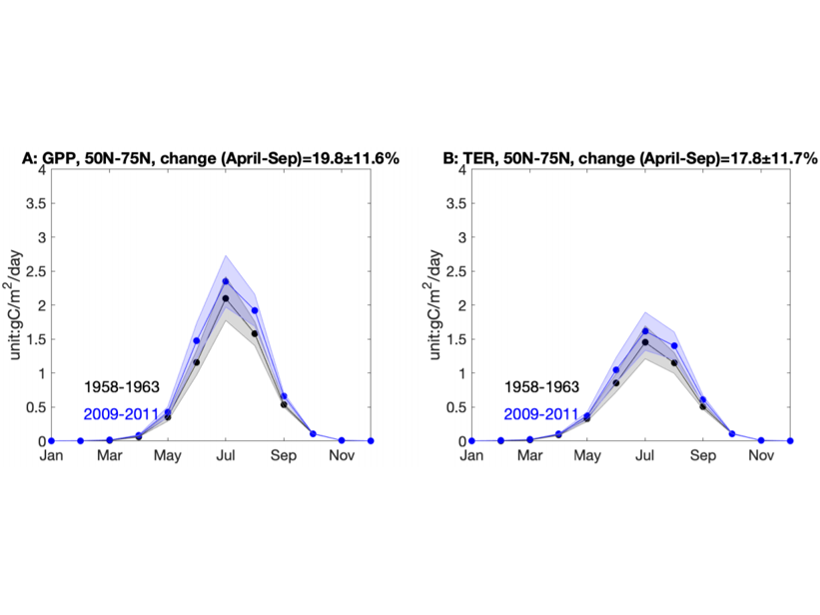The differences between future and present subseasonal predictability in the Northern Hemisphere provided by the tropics are evaluated using neural networks.
Northern Hemisphere
Models Oversimplify How Melting Glaciers Deform Land
When glaciers melt, the land below deforms. Sea level data show that widely used models oversimplify the process.
New Insights on Stratospheric Circulation from Fluorine Tracers
Stratospheric fluorine species have accumulated faster in the Northern Hemisphere over the past two decades reflecting interhemispheric differences in the Brewer-Dobson transport circulation.
Is Earth’s Albedo Symmetric Between the Hemispheres?
The two hemispheres feature the same planetary albedo despite a larger land fraction in the north, because storms over the southern ocean are cloudier than their northern counterparts.
High Climatic Response of High-Latitude Forests
The seasonal amplitude of atmospheric CO2 is increasing, partly due to boreal forest responses to warming. Photosynthesis and expansion of boreal forests are shown here to be temperature-limited.
Warming in the Antarctic Stratosphere Affects Tropical Weather
Rapid temperature spikes in the stratosphere above Antarctica can influence weather and spark cyclones in the Northern Hemisphere’s tropics.
Early Sprouting of Leaves Enhances Northern Hemisphere Warming
As leaf out has been advancing 4–5 days per decade, scientists say the effect of vegetation on climate remains poorly understood.
How Is Recent Arctic Warming Impacting East Asian Weather?
Arctic Warming and East Asia Weather Linkage Workshop; Incheon, South Korea, 13 May 2019
Using Multiple Models to Improve Seasonal Forecasting
The first study to examine the ability of a suite of general circulation models to predict sudden warmings in Earth’s stratosphere highlights the potential for improving Northern Hemisphere forecasts.
Organic Particles Affect Carbon Cycling in Boreal Waters
Dissolved organic carbon receives much of the focus in aquatic research, but a new study suggests that bulkier particulate matter may play a significant role in regulating carbon dioxide emissions.










